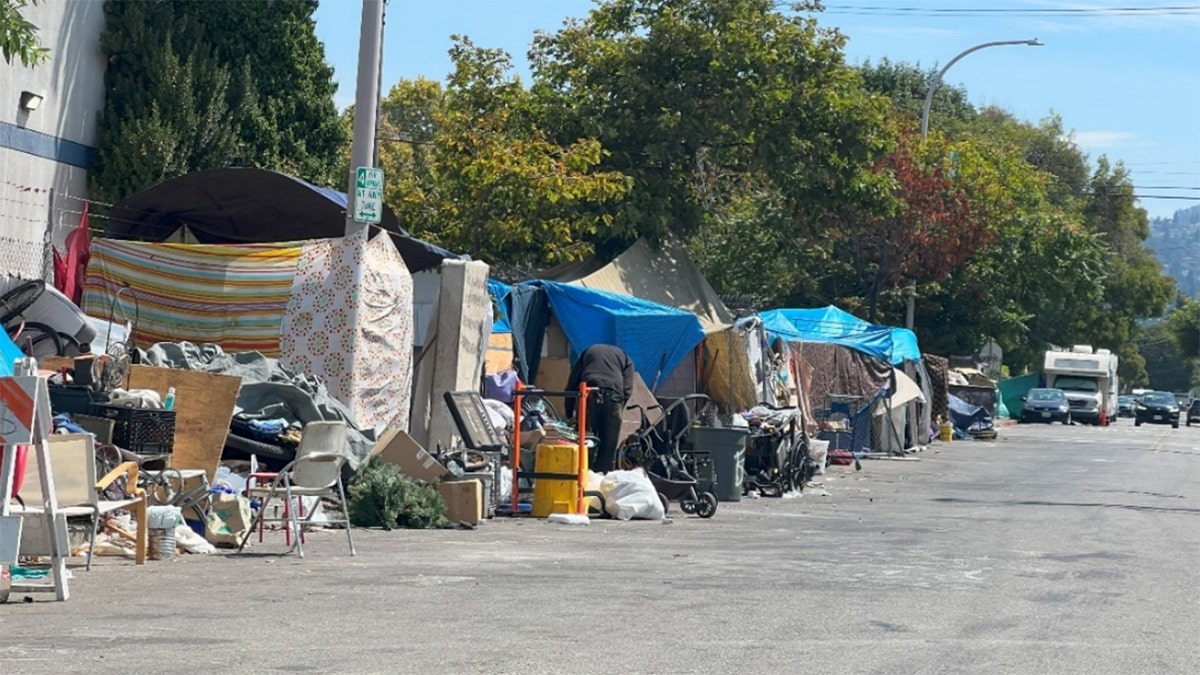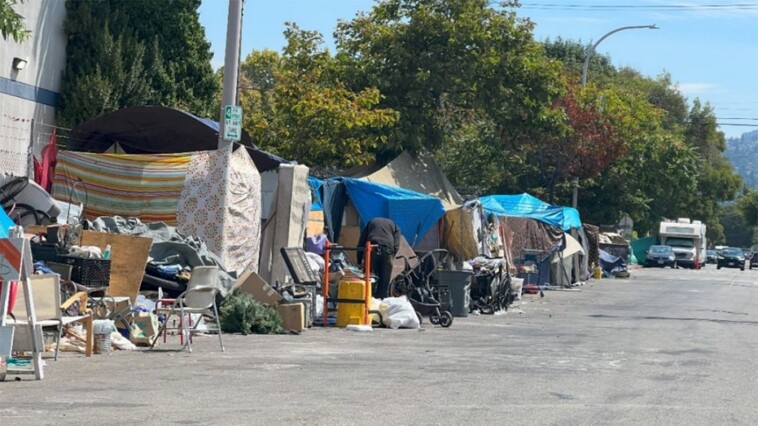Join Fox News for access to this content
Plus special access to select articles and other premium content with your account – free of charge.
By entering your email and pushing continue, you are agreeing to Fox News’ Terms of Use and Privacy Policy, which includes our Notice of Financial Incentive.
Please enter a valid email address.
NEWYou can now listen to Fox News articles!
Ten years ago, California voters passed Prop 47 to downgrade the possession of hard drugs from a felony to a misdemeanor, then continued to pass soft-on-crime proposals aimed at reinventing the state’s criminal justice system. Since then, crime, drug use and homelessness have skyrocketed, driving businesses and upstanding citizens from the state, a trend that should serve as a stark warning to other states who have followed California’s lead. Now, Proposition 36, or The Homelessness, Drug Addiction, and Theft Reduction Act, is on the California ballot to address these crises. As this proposition is poised to be passed into law, we can’t help but wonder, “So what?”
For the last decade, endless political promises, countless policy changes and billions of taxpayer dollars have been thrown at California’s homelessness, drug and crime crises, and they’ve only gotten worse. The Hoover institution reports, “Since 2019, California has spent about $24 billion on homelessness, but in this five-year period, homelessness increased by about 30,000, to more than 181,000.” Consistent with a terrifying national habit, there was little to no accountability for this spending.
Meanwhile, opioid-related deaths skyrocketed 121% between the beginning of 2019 and the end of 2021, further increasing since then. Similarly, widespread theft, smash-and-grabs and property crimes are out of control. Unfortunately, simply passing Prop 36 isn’t enough to tackle these issues. Sure, it will give cities the power to clean up their streets, but how will that happen when so many previous plans have failed?
I’ve walked California’s streets and talked with those at the heart of these crises, and the tough reality is that a free apartment to get them off the street and the number for a counselor is not what they want. And while well-meaning, it’s not really what they need, either. Transition without transformation is futile.

The City of Berkeley, California, is being sued by several businesses for failing to remove homeless encampments. (Superior Court of the State of California County of Alameda)
Rather than pouring many millions of taxpayer dollars into new housing complexes and providing ineffective resources that never get used, the answer is a rather commonsense concept of creating what I call “basecamps.” At a fraction of the cost, these large spaces would facilitate personal transformation to set people up for a successful transition into productive society rather than throwing them unprepared into a new life they don’t want.
CLICK HERE FOR MORE FOX NEWS OPINION
In practice, these basecamps would resemble a type of hybrid camp lifestyle, which is more comfortable for those transitioning away from homelessness and drug addiction compared to being isolated in a new apartment. They would continue to experience the sense of comradery and community often enjoyed by those living on the streets.
The basecamp would also foster a sense of structure and self-improvement by providing a cafeteria, chapel, laundry and even classes to promote resiliency and provide life skills training. Residents would have both the opportunity and expectation to contribute to their basecamp community by working in the available facilities and paying it forward as a mentor to others on their journey. These commitments would be especially impactful for many selfless and skilled homeless veterans, in whom a renewed sense of purpose would be ignited. It’s a tragedy and a colossal waste to leave our vets to die in the streets.
Meanwhile, opioid-related deaths skyrocketed 121% between the beginning of 2019 and the end of 2021, further increasing since then. Similarly, widespread theft, smash-and-grabs and property crimes are out of control. Unfortunately, simply passing Prop 36 isn’t enough to tackle these issues. Sure, it will give cities the power to clean up their streets, but how will that happen when so many previous plans have failed?
It’s easy for politicians to call it a housing crisis or a policy issue, because then the solution seems simple — build more houses or pass new propositions. But housing and policies aren’t the root of the issues and passing new propositions isn’t a magical solution. We need a larger investment into a systemic problem that destroyed the state of California and threatens to damage the nation.
CLICK HERE TO GET THE FOX NEWS APP
Instead of another pay and pray plan with no accountability or success, we need a commonsense solution that is both cost-effective for the taxpayers footing the bill and tailored to the real needs and reasonable capabilities of those being served. Basecamps may not be glamorous or politically lucrative, but the return on investment for our communities would be clean streets, and more importantly, rehabilitated human beings. Because at its heart, this is a humanity crisis that was completely preventable in the first place.
California’s soft-on-crime and lenient drug policies have been a proven failure. It’s time for the state to adopt a smarter strategy, which goes beyond simply passing Proposition 36. The homelessness crisis, rampant crime, and unchecked drug use are the results of these misguided and ineffective policies and a society that is too focused on quick and lucrative fixes. What’s happened on California’s streets should be a warning to the rest of America — this path only leads to greater chaos and destruction. We must heed this warning and get out ahead of these crises before America becomes California.


